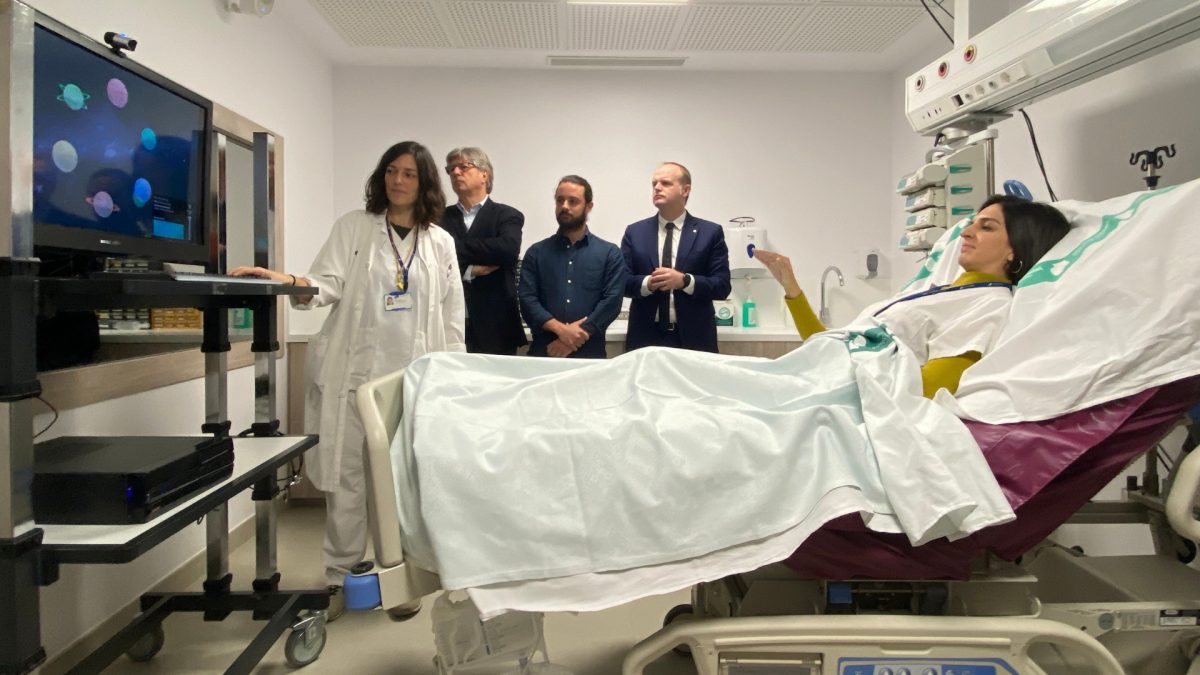
Eodyne Systems and I3PT create virtual reality device to reduce patient recovery time in ICUs
- Post Tags:
- innovation
- PICS
- uci
- Posted In:
- News
- Mireia Córcoles
- No Comments
- A camera with computer vision detects the movements of the hospitalized person and through a screen proposes personalized fun exercises in a virtual reality environment to work on aspects such as mobility, memory or attention
- The company has received a grant of 70.000 euros from ACCIÓ from the Business R+D Nucleus line aimed at developing new technological products or services
- the secretary of Business and Competitiveness and CEO of ACCIÓ, Albert Castellanos, visited this morning the Parc Taulí University Hospital in Sabadell, where the company carried out a pilot test of the technology
The Catalan company Eodyne Systems has developed one technology based on virtual reality and artificial intelligence which allows ICU patients to perform personalized arm exercises in a gamified context. The objective of this technological project is reduce the cognitive sequelae that users may develop as a result of their stay in the unit, which can help reduce recovery time.
Eodyne has been the beneficiary of a grant of 70.000 euros within the framework of the Nuclis program of business R&D of ACCIÓ, the agency for the competitiveness of the company of the Department of Enterprise and Work. This aid has allowed the company to take the first step to develop i test its technology on 20 critical patients at the Parc Taulí University Hospital.
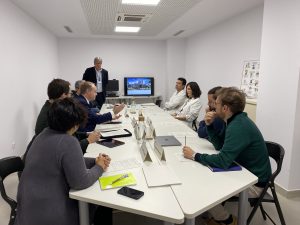
The Secretary of Business and Competitiveness of the Generalitat of Catalonia and CEO of ACCIÓ, Albert Castellanos i Maduell, met this Thursday morning with the CEO of Eodyne, Santiago Brandi, and Lluís Blanch, director of the Parc Taulí Research and Innovation Institute (I3PT).
After attending a demonstration of virtual reality technology, Castellanos assured that this project is an example of the “importance of having ways to transfer the knowledge generated by our universities and research centers to applications for the productive tissue and, in this case, to clinical practice". In addition, he emphasized that this is an "important initiative because it is part of a new business sector such as digital health, which is already a reality in our country and which is expected to grow at a rate of "16% annually".
In particular, the Catalan company has developed the virtual reality software called RGS-UCI which, together with the use of artificial intelligence, makes it possible to offer this process of neurorehabilitation combining cognitive exercise with motor function. A camera with computer vision detects the movements of the patient's arms and, through a screen, proposes personalized exercises that work on aspects such as mobility, memory, attention or processing speed.
The hospitalized person must solve gamified problems in the virtual reality environment, which simulates natural spaces such as space, the countryside or the beach.
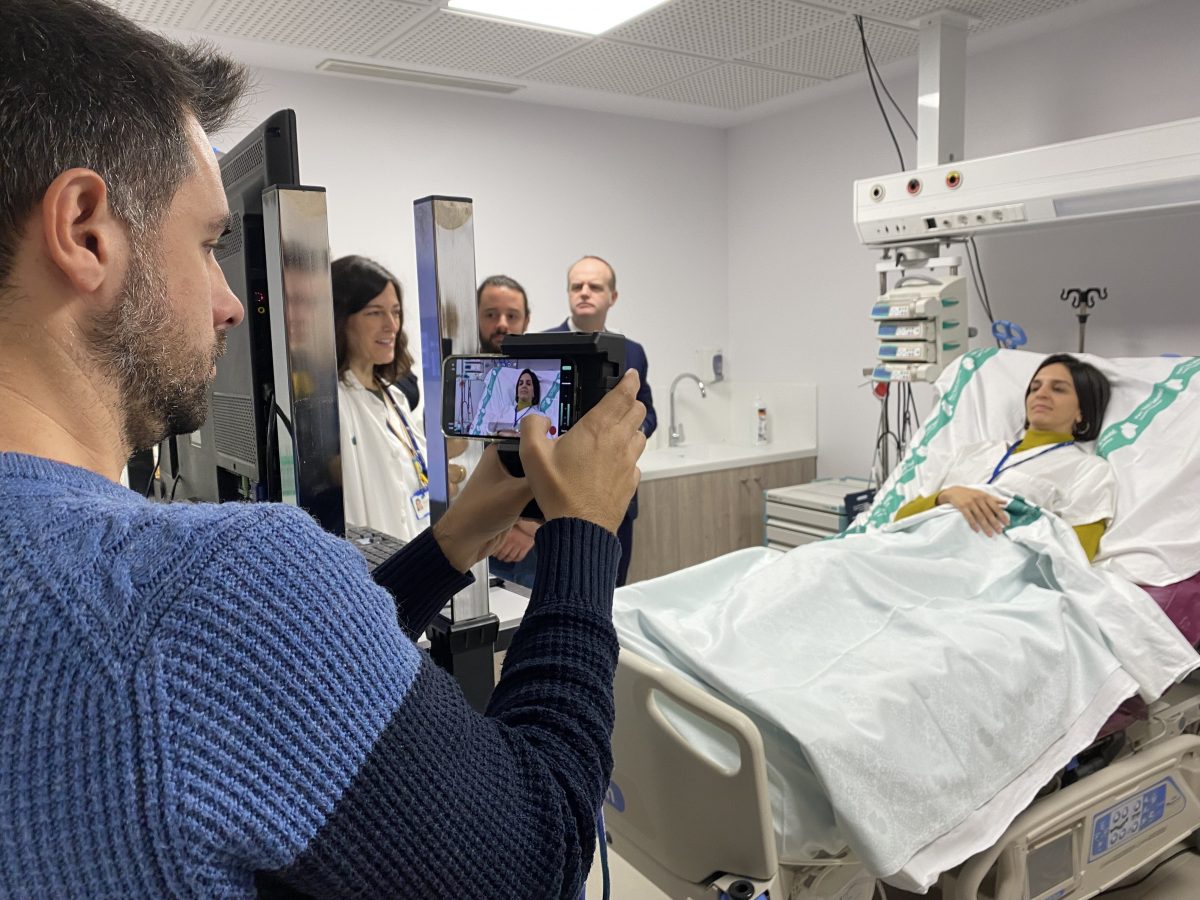
These are personalized exercises adapted to each patient depending on their mobility, developed in collaboration with the professionals of the Parc Taulí University Hospital and the I3PT.
In this regard, the CEO of Eodyne Systems, Santiago Brandi, has assured that "it has been shown that working together on cognitive exercise and motor function has a greater impact on cognitive improvement than if it is worked in isolation: we hope so for reduce the patient's hospitalization days in the ICU and thus avoid possible sequelae". Brandi explained that "we cannot use virtual reality glasses or place sensors on patients due to the risk of possible infections such as sepsis, so we resort to computer vision algorithms and artificial intelligence". "Virtual reality provides fun and engaging exercises to make patients have fun in an environment that is often sad and lonely", He emphasizes.
For her part, the neuropsychologist and researcher at the Parc Taulí University Hospital-I3PT, Sol Fernández Gonzalo, emphasized that "taking into account the results of the proof of concept carried out in our hospital, in order to evaluate the user experience, the application of the RGS-UCI is viable and the patients consider it useful and beneficial". In addition, "the execution of the exercises is simple, intuitive and well tolerated by the patients, who value the stimulation sessions as very satisfactory", pointed out Fernández.
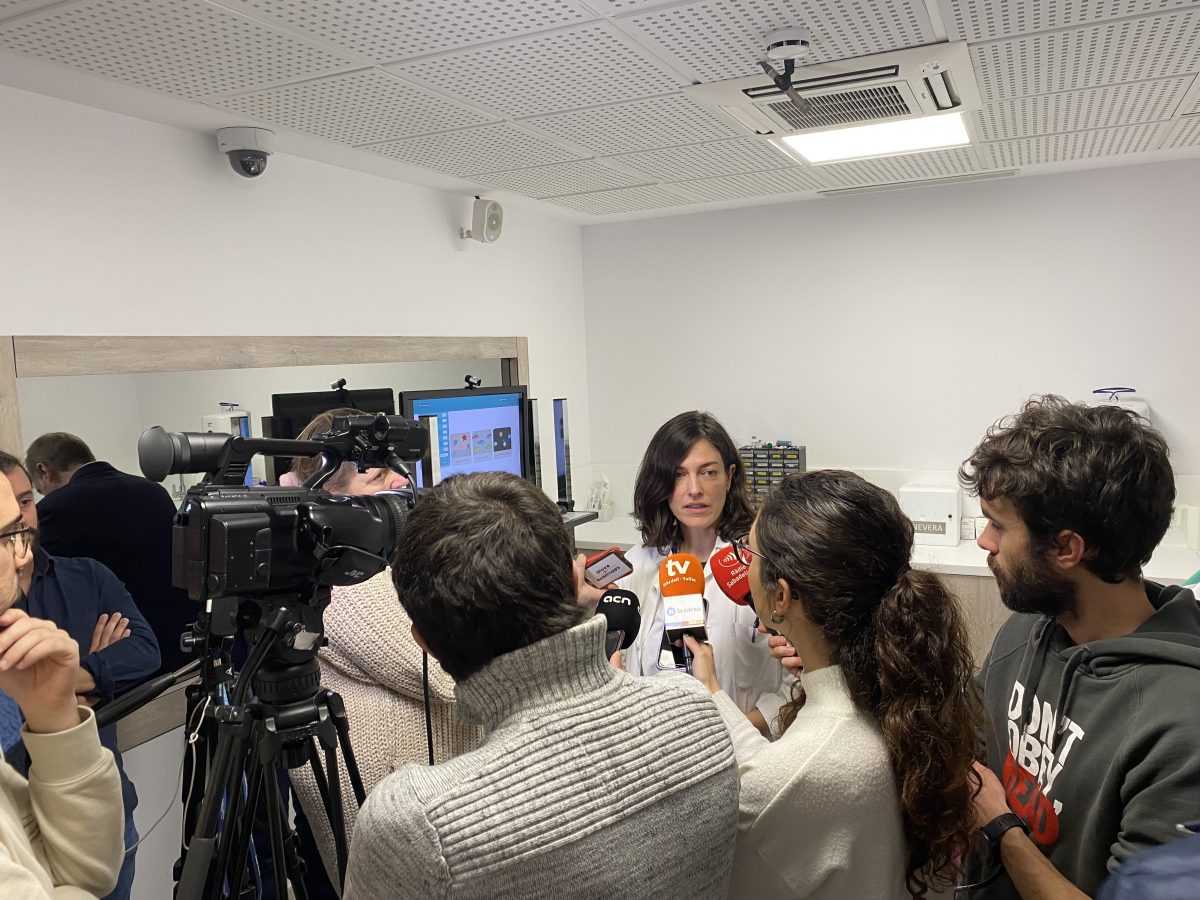
The platform also collects information on the health status of the patients who use it, collecting data on the different medical scales used to monitor them during their stay in the ICU, such as the level of consciousness, pain or delirium, among others.
Eodyne is currently working to obtain the necessary medical certificates to make its system an official medical device and to be able to market it in both public and private hospital networks. Incorporated as a derivative company (spin off) from Pompeu Fabra University, Eodyne was founded in 2014 in Barcelona. It has a team of 16 people and a network of clients with a presence all over Spain.



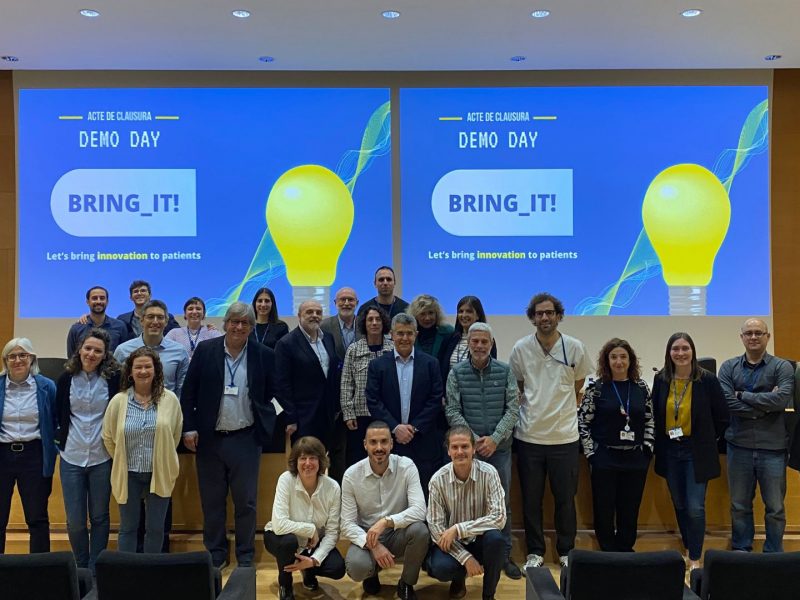
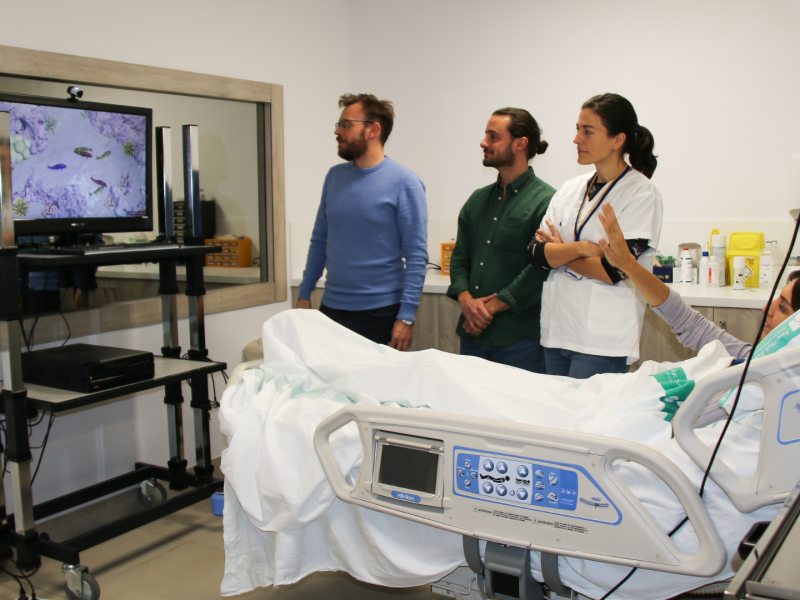
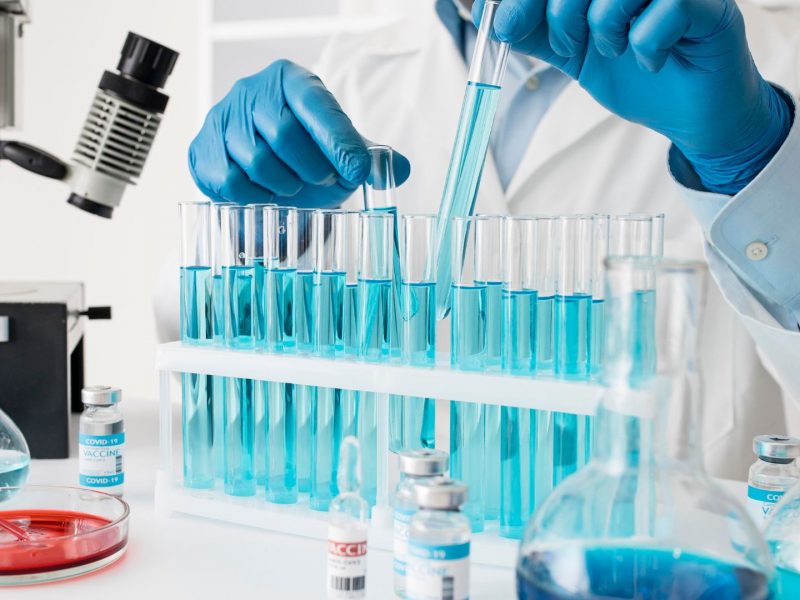
Leave a Reply